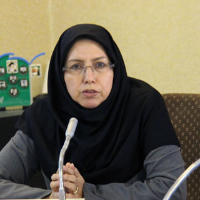Exploring and Identifying the Components of Teacher-Child Interaction Process Quality: A Qualitative Research
The quality of the interaction process between the child and the teacher considering the sensitivity, ease of effectiveness, stability, and depth of learning of children in this period will facilitate the educational process and better achieve the goals of the education system. Therefore, the present study aimed to explore and identify the components of the process quality of teacher-child interaction in kindergartens in Tehran.
This research was conducted by qualitative method with the descriptive phenomenological approach in 2020. To this end, ten educators for the age group of four to six years in Tehran were selected by homogeneous sampling method and eight faculty members were selected through snowball purposive sampling that continued until saturation. Data were collected by semi-structured interview and then coded and analyzed by Colaizzi’s method. The validity of qualitative data has been confirmed using four judgment criteria of Lincoln and Guba, the reliability of qualitative data has also been confirmed through test-retest reliability (validity index) and intercoder agreement (intra-subject agreement).
By analyzing the data, 22 sub-themes and 6 main themes were extracted, the main themes are: individual characteristics, positive emotional climate, supportiveness, learning opportunities, group participation, and behavior management.
The results of this study showed that educators have a crucial role in providing conditions and opportunities for the optimal development of children, that is related to the educator-children interaction process quality. The implications of the results are discussed in the article.
-
Developing a structural model for academic buoyancy base on motivational factors and mediator roles of grit, mental toughness and control
Batul Tamme, Fariborz Dortaj *, Abutaleb Saadati Shamir, Noorali Farrokhi
Educational Psychology, Winter 2025 -
The Effectiveness of Metacognitive Empowerment on Visual-Spatial Memory, Attention Control and Planning among Students
Samira Abbasi, Fariboz Dortaj *, Esmaeil Sadipour,
Biquarterly Journal of Cognitive Strategies in Learning, -
A Comparison of the Effectiveness of Social-Emotional Cooperative Learning and Mindfulness Training on Improving Social Problem Solving Skills
Malihe Ahmadi *, Kianoosh Hashmian, Fariborz Dortaj,
Educational Psychology, -
Development and Validation of the Positive School Orientation Questionnaire
Malihe Ahmadi *,
Educational Measurement, -
Developing and validating educator and child interaction process quality measure in kindergartens: A mixed-methods research
Fariborz Dortaj *, Aghmiuni, , Khadijeh Abolmaali
Journal of New Approaches in Educational Administration,


